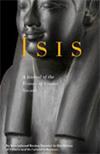《肉的瘟疫:近代早期意大利的食物、政治和战争
IF 0.9
2区 哲学
Q2 HISTORY & PHILOSOPHY OF SCIENCE
引用次数: 0
摘要
17世纪早期,罗马的肉类供应量呈指数增长,17世纪30年代人均消费量达到每天1磅。这种激增有文化和政治上的原因:在宗教改革之后,一系列的教皇试图把罗马城变成一个模范的“山上的城市”,代表了一个强大统治者统治下的天主教国家的理想。然而,要将如此大量的食物从农村带到罗马人的餐桌上,需要为教皇政权工作的各种官僚和当地工匠付出巨大的努力。这篇文章将简要地考察其中两个团体的努力,他们帮助创造了罗马的“肉类时刻”:检查和分发从农村带到罗马的动物的contatori和城市的屠夫。最终,供应的急剧增加是不可持续的,并将导致政治和生态动荡。本文章由计算机程序翻译,如有差异,请以英文原文为准。
A Plague of Meat: Food, Politics, and Warfare in Early Modern Italy
In the early seventeenth century, the amount of meat available in Rome increased exponentially, with consumption reaching a pound per person per day in the 1630s. There were cultural and political reasons for this surge: in the wake of the Reformation, a series of popes sought to turn the city of Rome into a model “city on a hill,” representing the ideal of a Catholic state under a powerful ruler. However, to bring such large amounts of food from the countryside to Roman tables required enormous efforts on the part of a variety of bureaucrats and local artisans working for the papal regime. This essay will briefly examine the efforts of two of those groups that helped create Rome’s “meat moment”: the contatori who inspected and distributed animals brought from the countryside to Rome and the butchers in the city. In the end, the dramatic increase in supply was not sustainable and would result in both political and ecological upheaval.
求助全文
通过发布文献求助,成功后即可免费获取论文全文。
去求助
来源期刊

Isis
管理科学-科学史与科学哲学
CiteScore
1.00
自引率
16.70%
发文量
150
审稿时长
>12 weeks
期刊介绍:
Since its inception in 1912, Isis has featured scholarly articles, research notes, and commentary on the history of science, medicine, and technology and their cultural influences. Review essays and book reviews on new contributions to the discipline are also included. An official publication of the History of Science Society, Isis is the oldest English-language journal in the field.
The Press, along with the journal’s editorial office in Starkville, MS, would like to acknowledge the following supporters: Mississippi State University, its College of Arts and Sciences and History Department, and the Consortium for the History of Science, Technology, and Medicine.
 求助内容:
求助内容: 应助结果提醒方式:
应助结果提醒方式:


